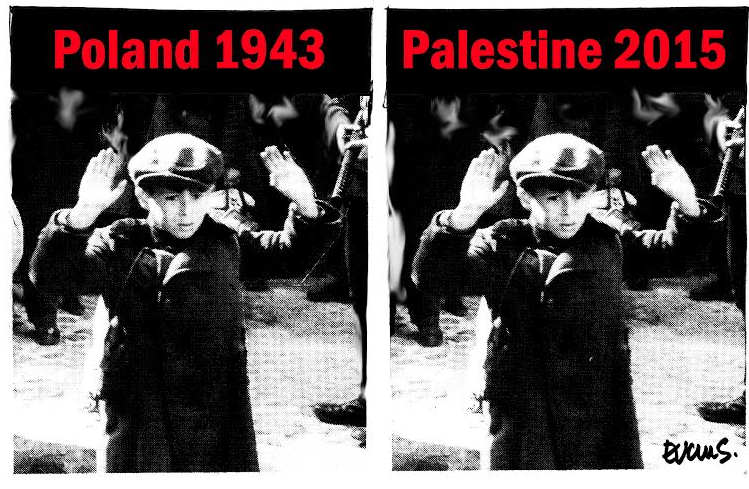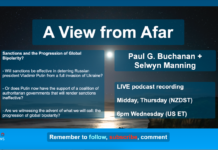“The only liveable future is one in which the ‘us vs. them’ mentality dissolves into the shameful recesses of history . . . soon – maybe in thirty years – Israel as we know it will be gone . . .” – Audrey Farber: Am I allowed to be a Palestinian Jew?
In 2014 the Israeli Academy of Sciences and Humanities held a conference called “From hating the stranger to accepting the other.” The President of Israel and the Minister of Education were guests at the conference but, although the list of speakers included both Jews and Arabs, Mizrahi Jews (Arab, lit. Eastern) were not invited. In Israel, the Mizrahim, the region’s native Arabic-speaking Jews, face discrimination from the dominant European (Ashkenazi) Zionist elite. Mizrahi artists, religious leaders and intellectuals hastily reacted to their exclusion by holding an alternative conference in a religious centre across the street from that promoted by the Israeli Academy. Called “The Voices of the Others”, and despite the short notice and miserable weather, the auditorium was filled with Jewish musicians singing in Arabic and scholars speaking about their vision of an end to discrimination. Professor Haviva Pedaya, an expert in Judaism, pointed out that Israeli history textbooks “describe us as backward and none of us have encountered a fair textbook.” In her book, Zionism from the standpoint of its Jewish victims, Ella Shohat explains how “. . . Zionism does not only undertake to speak for Palestine and the Palestinians, thus ‘blocking’ all Palestinian self-representation, it also presumes to speak for Oriental Jews.”
An Israeli of Iraqi Jewish ancestry, Rachel Shabi records the personal stories and history of Mizrahi Jews in her book, Not the Enemy. Through personal narratives and historical research, Shabi reveals the harm done by Zionism to Middle Eastern Jews. In her article Am I allowed to be a Palestinian Jew? Audrey Farber tells the story of two brothers, Palestinian Jews of East European descent. Their grandparents immigrated to Israel from Europe and raised them as Palestinians, “yeah, we’re Ashkenazi but we’re Palestinian”, they told her. “We went to Arab schools, we speak Arabic.” The pair did not serve in the Israeli Army; a lawyer friend of their parents had informed them of a little-known law which states that anyone – even an Israeli Jew – who identifies with Arab culture more strongly than with Israeli Jewish culture is exempt, like most non-Jewish Arabs, from Army service.
The Zionist perspective is promoted by Western politicians and the mainstream news media through terminology that creates certain, simplistic and seemingly self-evident, impressions. For centuries Palestinians of various religions lived together in peace and, as history records, for nearly 800 years Arab and Jew lived together harmoniously in Andalucia. It was the European reconquest of Spain in 1492 that saw Jews once again persecuted, exiled or forcibly converted to Christianity. As Rachel Shabi reminds us, “a Jew can also be Arab. So why cannot a Jew be Palestinian, or a Palestinian a Jew?” She makes the essential point also that, “The Palestinian-Jew dichotomy is not only imposed, brainwashed into us, but it is completely fabricated. To be Jewish is to be a part of a religion, heritage, culture, and tradition. It is not a nationality.” Shabi reminds the Israeli leader, Netanyahu, (our own political leaders should note also) that, “to be Palestinian means to be a part of the community whose members can trace their lineage back to this land, the families who have historically owned homes and property in this corner of the world. For many, it is living here that makes them Palestinian. It is a national identity, a shared history, and a shared place. Palestinians are a diverse group: Muslims, Christians, atheists, Bedouin, Druze, Israelis, Palestinians, Jordanians, Americans, Communists, Marxists, capitalists, anarchists… even Jews.”
Zionist regime
The colonialist assumptions and prejudices that the European-mentored Zionist regime’s ideology has inherited manifest themselves daily. In Israel they are found in the discrimination experienced by Palestinians as well as Sephardic and Mizrahi Jews. The Zionist obsession with demography is recognised and condemned in United Nations Security Council Resolution 476) which deplores “the persistence of Israel, in changing the physical character, demographic composition, institutional structure and the status of the Holy City of Jerusalem”. Outside of Israel, there is the appalling suffering inflicted upon Palestinians by Israeli military oppression. As Israel refuses to define its borders so, alongside discrimination, goes expansionism and settlement. On 14 December 1981, for instance, the Israeli Parliament voted to annex the Golan Heights in Syria and impose Israeli civilian law and administration on the territory while, all the time, illegal Israeli settlements continue to grow in the Occupied Palestinian West Bank.
The Kairos Palestine Document
In Palestine, the birthplace of Christianity, Israel’s persecution of Occupied Christians has led to the publication of what is known as The Kairos Palestine Document. The authors call it “the Christian Palestinians’ word to the world about what is happening in Palestine”. The Christians quite rightly call on “the international community to stand by the Palestinian people who have faced oppression, displacement, suffering and clear apartheid for more than six decades”. The document details how Israel makes “family life impossible for thousands of Palestinians, especially where one of the spouses does not have an Israeli identity card”; with restricting religious liberty for Christians and Muslims; with lack of consideration for refugees and prisoners; with turning “Jerusalem, city of reconciliation”, into “a city of discrimination and exclusion, a source of struggle rather than peace”; and with holding “international law and international resolutions” in “contempt”. The document declares that: “Love is the commandment of Christ our Lord to us” and that it means “seeing the face of God in every human being”. Yet this “does not mean accepting evil or aggression on their part”. Love, rather, “seeks to correct the evil and stop the aggression”. Therefore, Christian love compels that the Israeli Occupation of Palestine be resisted. The document calls for “civil disobedience” and “respect of life”, endorses the BDS movement and rejects the idea of “a religious state” in the Holy Land. [A moment of Truth]
“ . . . forgive them for they know not what they do.”
Regardless of one’s personal religious belief – or non-belief – Christianity has given the world an insight that, if thought upon, should appeal and offer hope to all humanity. The Gospel of St Luke (23:24) quotes what it holds to be the words of Jesus as he was being crucified: “Father, forgive them; for they know not what they do.” This deeply insightful appeal is no meak surrender to injustice and terror, rather it is recognition and a warning that from time to time, there arise ideologies and political propaganda that suffocate reason. The voices of powerful interests become so dominant that few in a given society dare, or even think, to question them. Ideologies arise, then fall from fashion – but the harm they do lasts for generations, watering the seeds of future conflict. The words from the Cross tell us to remember our humanity and not allow our consciences to be overruled by assumptions and propaganda. Zionism and the Fourth Geneva Convention are demonstrably incompatible so we must ask the question: which of the two offers the best hope for peace and stability?
A single state
The Zionist regime rules the whole of Israel/Palestine (the Israeli blockade of Gaza, with its concomitant and pervasive ceasefire violations, makes it plain who is in charge, who controls the economy and who can come and go) and the result is a de facto single state. Israel has changed the demography of Palestine forever. In the process of achieving its objective, the Zionist project has depended upon the creation of refugees, the largest and longest-lasting such crisis in modern history. Whatever happens in the process of removing the Zionist regime, there must be no possibility of a recurrence of such a terrible injustice. Palestinian refugees must be allowed to return because there should be no refugees and a state with equal rights for all is the only civilised and just answer.
The UN – making amends
In the middle of the last century the world community ignored the objections of the Palestinian people, denied them their right to self-determination, partitioned their land and imposed Zionism upon them. We have a humanitarian duty to right that wrong and make some amends to all who have suffered so grievously as a result. With the best will in the world it might seem to many people that it would now be impossible to undo the Zionist regime that describes itself as “The Jewish State”. But in today’s world, Zionism’s fundamentally discriminatory nature is not just morally unacceptable, it is in contravention of international law. Audrey Farber expressed it very reasonably: “Palestinian identity must be secular, national, tied to a place and a geo-political history and all that that entails. In these terms, with these identities, there is no reason that a Jew cannot be Palestinian, or that a Palestinian cannot be a Jew.”






One way or another, there must be a peaceful and just resolution.
Anything else condemns both Israeli and Palestinian to neverending war. I do not believe it is in human nature to allow such a thing to perpetuate.
Comments are closed.